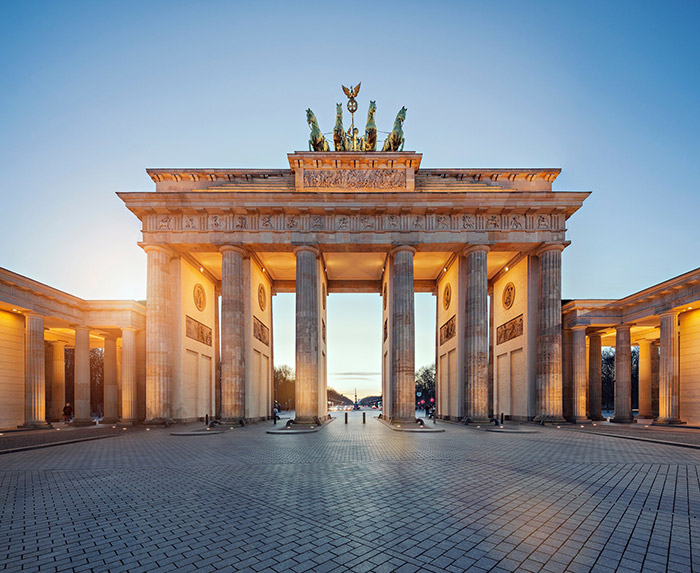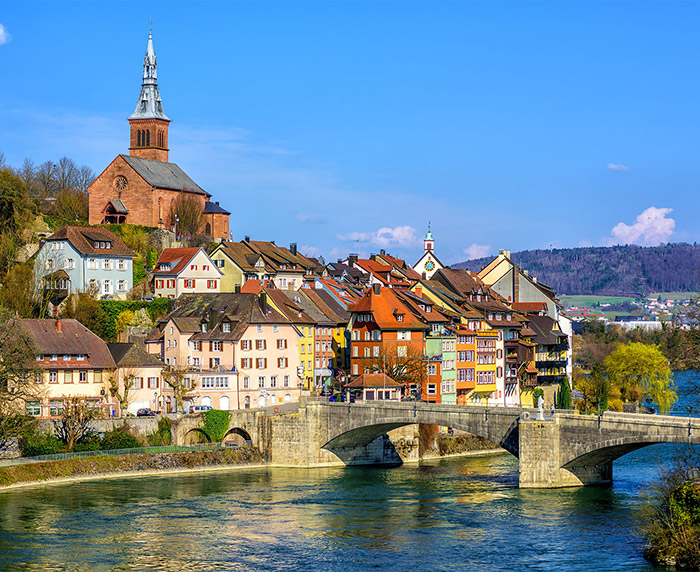Germany
Germany is one of the most desired travel destinations in Europe with its deep history, fairy tale gingerbread houses, rolling hills, and romantic winding rivers. It is most well known for its bratwurst, sauerkraut, and dark beers, but the country is so much more than that. The country is a mix of historic Bavarian castles and Rathaus’ while major cities are filled with skyscrapers.
With its jagged Alps, mysterious forests, soothing beaches, and miles of lush vineyards, Germany is an appealing destination to fit any traveler’s style. Within each city, you will find treasure troves of art, history, culture, and everything in between. You will find driving the Autobahn a thrill or a visit to BMW Museum a dream for those car-lovers.
The best time to visit Germany is during the spring or fall months, such as May or October. Summer is peak season so expect larger crowds, and the weather can be quite warm. The winter is great for those that enjoy winter sports or visit the Christmas Markets throughout Germany.
Things to See and Do in Germany
Typical Costs When Travelling
Accommodation – Germany offers many Hostel accommodations that range from about 10-22 EUR ($11-25 USD) per night for a dorm room. Expect to pay around 40-50 EUR ($45-57 USD) for a private room per night. Many hostels offer free Wi-Fi and include complimentary breakfast. Budget to mid-range hotel prices is between 80-120 EUR (90-150 USD). Airbnb is another excellent option ranging from 30-60 EUR ($35-65 USD) per night. While wild camping is illegal, there are a ton of campsites around the country. Expect to pay 5-20 EUR ($6-23 USD) per night.
(Visit Hotels.com or Airbnb.com for accommodations)
Food – At many of Germany’s local grocery stores, you will find pre-made meals, and such is the cheapest way to eat your meals which range from 5-8 EUR ($5.50-8.50 USD). Street food stalls can be found in major pedestrian areas where you can purchase bratwurst or sausage in a bread ranging from 2-4 EUR ($2.50-5.50 USD). Traditional German meals at a café or restaurant range from 14-18 EUR ($16-20 USD). At nicer restaurants, you can expect to pay 20+ EUR ($24 USD) per meal. In addition, expect to spend 4-5 EUR ($4.50-5.70 USD) for a pint of beer.
(Visit Travelzoo to find best places to dine)
Transportation – Traveling between cities can be done easily on high-speed trains called Deutsche Bahn but can be expensive – Frankfurt to Berlin, roundtrip is around 120 EUR ($130 USD). Intercity trains which operate slower will cost between 45-75 EUR ($50-80 USD) for a second-class ticket. Basic intercity trains cost about 20 EUR ($25 USD). Riding the U-Bahn (underground) or S-Bahn (above ground) subway fares are determined by zones but start from 3 EUR ($3.50 USD) one-way. A one-day unlimited pass for the subway runs about 7 EUR ($8 USD).
Train – A Eurail Pass, which allows travelers to explore Europe by providing a set number of stops in a specific period, might also be a good option.
Bicycle – Most cities offer bicycle rentals which are around 18 EUR ($21 USD).
Taxis are expensive. They are metered, and the base rate is around 3.70 EUR ($4.20 USD) plus an additional 1.90 EUR ($2.15 USD) per kilometer. Taxis can be booked in advance using the MyTaxi app. Uber is available in Germany and cheaper than taxis but still not the most inexpensive way to get around. The best option is to use public transportation; buses and trams are good, clean, and timely.
Buses are the cheapest way to get around. The service is usually punctual, although not as efficient as the train. Buses( Flixbus, Eurolines, Deinbus) are comfortable with reclining seats, air-conditioning, rest stops, and sometimes even free Wi-Fi.
Activities – A museum ticket can cost between 3-15 EUR ($5 -17 USD). Bike tours and river cruises can cost 25-45 EUR ($29-50 USD). Most city tours are between 12-25 EUR ($14-29 USD).
Suggested daily budget – Germany offers many activities. The average daily budget should be approximately $160 per person, including hotel, transportation, meals, and sightseeing. A week’s vacation for two people costs roughly $2,300 staying at mid-range hotels.
Money Saving Tips
What can I expect from Germany?
- Language: The official language is German. In most tourist cities, English is widely spoken.
- Currency: The currency is Euro 1 USD = 0.86 EUR
- Plugs: The plugs are Type F. The standard voltage is 230 V, and the standard frequency is 50Hz. I recommend buying a universal adapter and using a converter for hair tools.
- Safety: Germany is generally a safe country to travel. However, pickpockets and tourist scams are common, especially in major cities. Always trust your gut instinct. Make copies of your passport and ID. Always let someone know where you are.
- Vaccinations Needed: If your country is on the orange list, you will be required to quarantine for seven days. Vaccinated arrivals are exempt. If your country is on the red list, you will be required to quarantine for ten days. When arriving in France, you will need to show a negative PCR test no older than 72 hours or your vaccination document. A green pass is required to use public transportation. Some restaurants will require you to show the green pass. Wearing a face mask is required in enclosed public areas and outdoor social events. Please keep up to date with Tripsguard or visit the government website.
November 14, 2021








